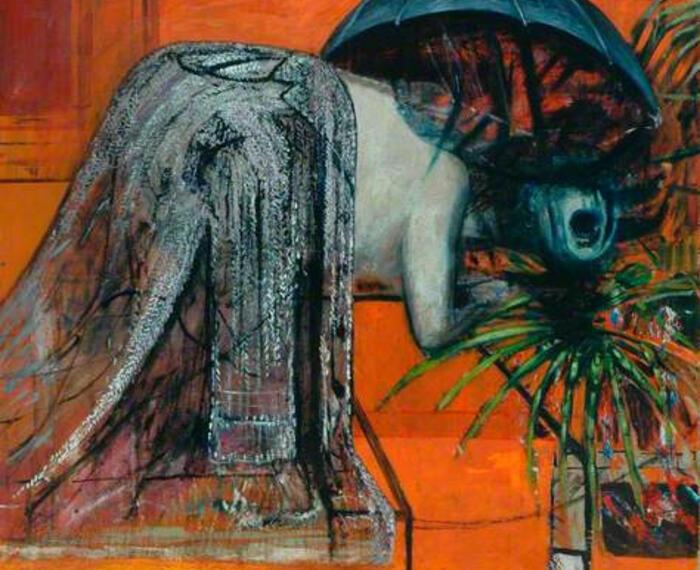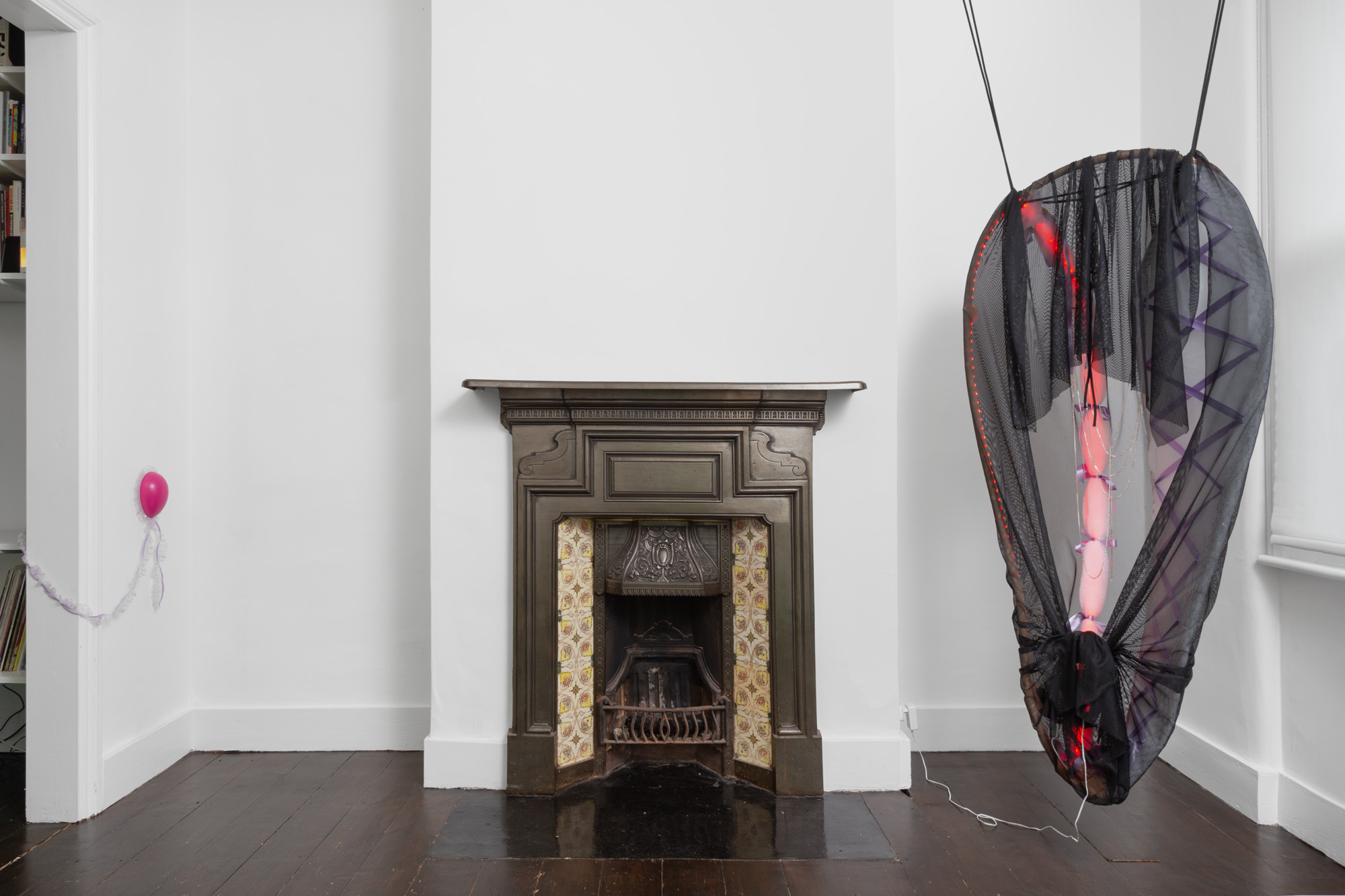


Daphne Ahlers – Depressions, installation view. Courtesy of the artist and Sundy, London.
Situated on a very ordinary street in South London, with a great slab of the Aylesbury estate looming nearby, Sundy is not in the most immediately obvious location for an art gallery. It is in fact the home of its founders, continuing in the tradition of galleries and project spaces that start in domestic settings. Only a subtle gold plaque on the door distinguishes this house from all the others on the street.
Having entered this paragon of domesticity, one is confronted by three giant vagina-like sculptures occupying the whole of the living room, the main exhibition space. In this intimate setting, the presence of these large-scale works constricts me into the space; am I surrounded by the representations of my own gender? “Our most sensitive parts, depending on the correlated narration and consented fiction, can be the most powerful, controlling, destructive and therefore feared” states the artist Daphne Ahlers.
Titled Depressions, the exhibition of Berlin-based Ahlers plays with associations, assumptions and disguises, centring on gender and its social construct. The work that gives the show its title is a pale pink sculptural rectangle on a bookcase. A block of foam wrapped in fabric, Ahlers has pushed pins into its surface to create a swirling pattern. “Depression is the act of pressing down something into something else” reiterates the artist, not just a psychological condition.
Time is a slow feeling, 2020 is suspended by two black ropes on the ceiling, an oval empty structure wrapped by black mesh. Within its form lengths of fleece are tightly tied with satin ribbons, dangling amongst neon lights and thin golden necklaces. The red lights and the veil of mesh elude to different visibilities, seeming to suggest an experimentation with the erotic.
On the opposite wall, a much smaller sculpture in a bright fuchsia sits on the wall with a rounded form, like the cutest balloon, Bump, 2020. The title suggests a sound, a collision, perhaps a pregnancy? None of these. It’s actually a groin guard, known colloquially as a ‘box’, disguised by colour and textiles. In this context, it is clear that the suspended sculpture, along with most of the others on display are enlarged versions of this very intimate piece of equipment.
“I kept searching for pre-existing industrial parts that resemble the cave shape (…) the guards are the first hard things I have made” states Ahlers, referring to her wider practice that mixes less defined forms of handcrafted materials with rigid, industrially made items.
Wrapping and adorning this groin guard with silk and ribbons, Ahlers considers gender from an ironic and cerebral standpoint. The titles of these masculine containers refer to feminine sexuality with humour, works like the Quantum Cyst and My Husband has No Courage. In this show Ahlers references directly to American performance artist Vito Acconci’s ‘Adjustable Wall Bra’, a giant mobile sculpture of this feminine symbol that visitors could sit in.
Rather than assuming any nurturing aspects, Ahlers’ sculptural guards offer no shelter and no invitation. Shifting the terms of authority, Ahlers proposes a forceful female perspective that goes beyond given bodily characteristics. By inserting herself into a sculptural tradition, Ahlers subverts viewpoints of gender construction from a material perspective.
This exhibition is witty and carefully put together. In the glorious Victorian bathroom hangs a peach coloured work with white nylon dividing its form into sections. Two tennis balls hang below, a representation of the masculine sex? Its title, Doubts, reminds the viewer once more to never consider objects for what they appear to be.
Depressions urges the viewer to question assumptions about gender. Visitors should 'depress' the forms, symbols and conventions of feminine and masculine into “something else”. Ahlers’ exhibition leaves you with little choice in this.
Ilaria Puri Purini
Curator of Programmes
Sundy, 43 Wooler Street, London SE17 2ED. Sundy is currently open by appointment only. Exhibition continues until 21 November 2020. www.sundy.co.uk